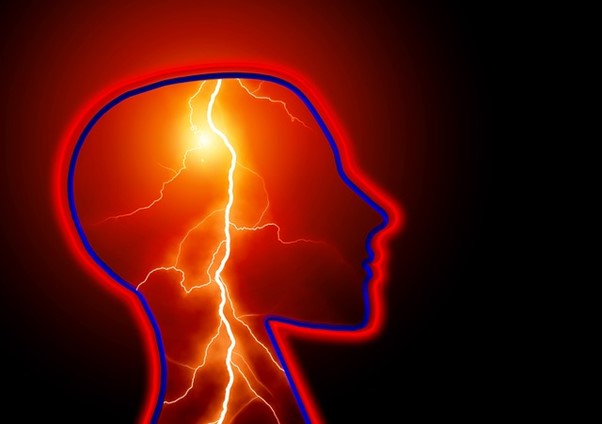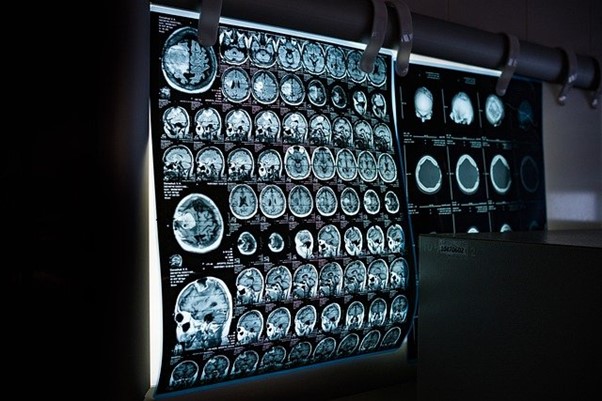The most complex yet vital organ in the body remains at the forefront of cutting-edge research and new treatment aims. From the young to the old, maintaining, preserving, and improving neurological function in patients depends on groundbreaking discoveries.
Dr. David Zagzag says scientists remain committed to pushing the boundaries of neurological medicine, as the following stories from the world of neurology detail.
Resilience to Alzheimer’s Linked to Proteins
The origins of Alzheimer’s disease and dementia remain unknown; while it’s true that certain lifestyle and genetic factors certainly play a part, research has long been focused on why certain ‘resilient’ members of the older population live well into old age with no cognitive impairment.
However, recent studies suggest that certain peptides (strings of amino acids that make up proteins) may be more adept at warding off cognitive impairment. While the studies require further research and a wider range of patient samples, early results are promising, and could provide a signpost for future drug and treatment discoveries to stave off the onset of degenerative neurological disorders.
Prestigious Scientific Award Received by Stephen Hauser, MD
Thanks to a career committed to understanding the cause of, and treatments for, multiple sclerosis (MS), Dr. Stephen Hauser MD, Professor of Neurology at the Weill Institute for Neurosciences, has been awarded the Scientific Breakthrough Award.
The award is given to those in the fields of research whose findings have contributed meaningful breakthroughs in neurological research. It is being presented to Dr. Hauser for an illustrious 40-year career, in which he has dedicated his time to developing therapies to tackle MS and improve life expectancy.
…but Work in the Field of MS is Still Required
While scientists continue to make medical advances, as in the case of Dr. Hauser, the increasing number of people being diagnosed with MS is wreaking havoc on the American economy, according to ScienceDaily.
An estimate of $85.4 billion dollars has been given as the cost not only for treating the disease, but for the support of those unable to work due to its effects. With over 1 million people suffering from varying levels of MS, focus must remain on treatment and management, as there is no current cure.
Population growth and a lack of cure in the future will mean the figures for both patients and financial impact of the disease will swell by a further 20% by 2039, compounding a fiscal burden to a need for a cure.
Celebrity Aphasia Diagnosis Raising Awareness of the Disease
When veteran actor Bruce Willis announced at the beginning of April that he was retiring from acting due to aphasia, millions around the world searched online for more information on this brain disorder.
Characterized by language disturbance (reading, writing, speaking, and comprehension) aphasia is often more of a symptom rather than a condition. It can be caused by a variety of pathological conditions including an infection in the brain, a stroke, a brain tumor or be part of the symptoms associated with Alzheimer’s disease.
It is not known whether Bruce Willis is suffering from any of the above in connection with his aphasia, but despite his concerning diagnosis, his open acknowledgement of its impact on his life is doing much to raise awareness.

Hope for Migraine Sufferers
In the knowledge that 12% of the planet suffers at some point with migraines, it makes sense that work continues in the hope of finding treatment for this debilitating neurological disorder.
And now, scientists in Iran have conducted a study in which they treated 80 patients with the drugs Venlafaxine (VLF) and Amitriptyline (AMT). Both drugs are usually used to treat severe depression: Venlafaxine is an SNRI (serotonin-norepinephrine reuptake inhibitor), and Amitriptyline a tricyclic.
However, both medications can also be used in the treatment of severe pain, and the study, carried out with a selection of patients who regularly suffer from migraines, has shown some positive results.
Despite being in its early stages, symptoms monitored both before and after the administration of one of the drugs resulted in definite clinical benefits from both AMT and VLF.
Interestingly, while 57%, therefore a larger share, of the group involved in the study were female, it was found that male patients responded better to treatment, resulting in fewer instances of migraine, with less intensity in symptoms and shorter duration times of attacks.
While the two drugs showed impressive results, it is thought that VLF may be a preferable drug to most physicians given that they prompted fewer side effects; AMT-treated participants reported more instances of insomnia and drowsiness.
Remember:
Always consult with a qualified and licensed physician. The content and information on this website is not intended to be a substitute or to replace professional medical advice for accurate diagnosis or appropriate treatment. Readers are encouraged to confirm the information contained herein with other sources, not to rely on this website for emergency medical treatment and to carefully review the information provided with their professional health care provider. In short, this website is not an attempt to or should not be used to make a diagnosis, to replace or to overrule a qualified health care provider’s judgment.
References
- https://www.neurologyadvisor.com/topics/general-neurology/cognitive-resilience-proteins-brain-health-older-adults/
- https://journals.lww.com/neurotodayonline/blog/breakingnews/pages/post.aspx?PostID=1231
- https://www.neurologyadvisor.com/topics/migraine-and-headache/amitriptyline-venlafaxine-migraine-attacks-severity-frequency/
- https://www.ucsf.edu/news/2022/04/422561/ucsf-neurologist-receive-prestigious-scientific-award
- https://www.sciencedaily.com/releases/2022/04/220413161815.htm
- https://news.miami.edu/stories/2022/03/neurology-specialist-addresses-aphasia,-the-illness-affecting-bruce-willis.html
- https://pubmed.ncbi.nlm.nih.gov/30909217/#:~:text=We%20defined%20cognitive%20resilience%20as,or%20other%20causes%20before%20death.
Disclaimer: Always consult with a qualified and licensed physician. The content and information on this website is not intended to be a substitute or to replace professional medical advice for accurate diagnosis or appropriate treatment. Readers are encouraged to confirm the information contained herein with other sources, not to rely on this website for emergency medical treatment and to carefully review the information provided with their professional health care provider. In short this website is not an attempt to or should not be used to make a diagnosis, to replace or to overrule a qualified health care provider’s judgment.

